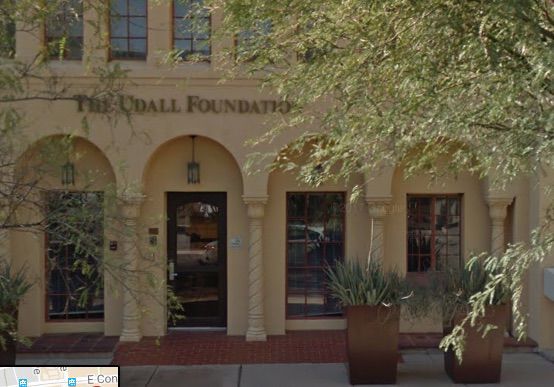The Tucson-based Udall Foundation is again finding itself under renewed criticism from a federal agency after a report of problems with its accounting practices, poor financial control and its policies for awarding scholarships.
The report from the Office of the Inspector General comes at the same time that U.S. House of Representatives considers an appropriations bill that would eliminate the single largest source of funding for the executive-branch agency that provides scholarships and internships for top students in environmental policy and tribal policy.
The bill, authored by Georgia Republican U.S. Rep. Tom Graves, would strip an estimated $5.4 million allocated by Congress from the foundation, which also operates two institutes, the U.S. Institute for Environmental Conflict Resolution and the Native Nations Institute for Leadership, Management and Policy.
In a release touting the passage of his $20.2 billion financial reform bill out of the House Appropriations Committee, Graves said he was proud to cut $1.3 billion out of the federal budget. In it, he touted the elimination of several non-essential programs, specifically singling out the Udall Foundation, which has its office in downtown Tucson.
The appropriation bill is awaiting consideration by the full House, which will likely take place in September.
In early June, the Office of the Inspector General sent a 31-page final audit to Congress outlining a number of continuing issues with the federally-funded agency.
“Overall, we found problems with the Foundation’s compliance with legislative spending requirements and program objectives; its policies for awarding scholarships, internships, and fellowships; and how it allocates costs between its two program areas, Education and Environmental Conflict Resolution,” the report says.
“We found that the Foundation was not separately tracking its spending for scholarships, internships, and fellowships and did not meet its legislative spending requirements in the years we reviewed,” it reads.
“We questioned the Foundation’s use of two different base amounts to calculate its spending requirements for scholarships, internships, and fellowships; administration and salaries; and the Udall Center. Using different base amounts gives the appearance that the Foundation is using the amount that allows it to spend more on administration and less on scholarships.”
Philip Lemanski, the executive director of the foundation, and Eric D. Eberhard, the chair of the Board of Trustees, declined to be interview and referred all questions to a two-page response written to the OIG when the foundation received a draft version of the report.
In it, Lemanski wrote the board strongly disagreed “with the lack of context provided in the draft report as well as the vague or, in some cases, misleading language of the draft report.
“Taken together, the problems with the way the report is written may lead the reader to conclude that the Foundation willfully ignored statutory requirements, rather than made errors in calculation; has not yet fully documented most of the relevant policies; and has not proceeded in good faith based on guidance provided to it.”
However, Lemanski agreed to the eight recommendations from the OIG on better accounting practices and changes to formal policies.
“The Foundation is committed to continuous improvement in the reliability of its data and internal controls while meeting the statutory purposes of the Udall Foundation programs,” he wrote.
This isn’t the first time the Udall Foundation has been criticized by the Office of the Inspector General.
In 2013, it found “significant issues” with the Udall Foundation’s internal controls for financial management, personnel and contracting.
In 2015, the OIG found the federal agency failed to implement key policies and procedures over its contracting practices, including requiring evidence of management’s receipt and review of contractors’ invoices.
In both instances, the foundation under Lemanski’s leadership agreed to make changes in an attempt to meet federal rules and guidelines.





